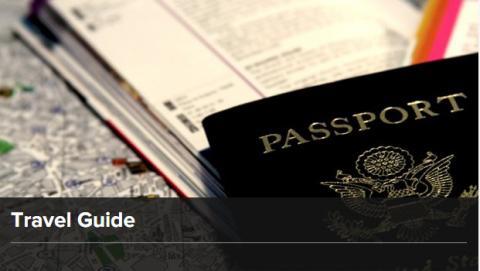AUTHORITIES IN ALBANIA HAVE MANDATED THE USE OF FACEMASKS IN ALL INDOOR AND OUTDOOR PUBLIC SPACES FROM OCTOBER 15 AS PART OF THEIR EFFORTS TO REDUCE THE SPREAD OF CORONAVIRUS DISEASE (COVID-19). OTHER MEASURES STILL IN FORCE INCLUDE A BAN ON LARGE PUBLIC GATHERINGS AND THE CLOSURE OF MOST ENTERTAINMENT AND CULTURAL FACILITIES. MOST NONESSENTIAL BUSINESSES HAVE REOPENED.
Note: this page contains basic risk information. For more details, please contact the Risk Services Office at risk@berkeley.edu.
If you are traveling to Albania on University-related business, please sign up for the University’s travel insurance program by going here. For more information on the travel insurance program, please go here
Because everyone’s health is unique, we suggest seeking the advice of a medical professional before traveling internationally. Members of the campus community interested in protecting their health while abroad may schedule an appointment with the University Health Services International Travel Clinic
Health care in Albania is average overall, but ranges widely. Generally, care is worst in rural and public medical facilities and best in urban, private facilities. Medication may be in short supply, so travelers should bring enough for the duration of their stay.
Air pollution is a concern in urban areas. If you have a chronic respiratory condition such as asthma, please consult a medical professional prior to your trip and carry appropriate medications.
The quality of drinking water in Albania may be poor, especially in rural areas. To reduce the risk of gastrointestinal discomfort or illness, drink bottled, boiled, or purified water.
Street vendors and other unregulated food distributors may have poor hygiene standards and should be avoided. Travelers should also avoid raw or undercooked meat dishes and unpasteurized dairy products, which may harbor bacterial and parasitic pathogens.
Disease risks in Albania include:
- Tick-borne encephalitis. Exposure is highest from April to November in forests and fields below 5,000 feet elevation.
- Crimean-Congo Hemorrhagic Fever (CCHF), usually transmitted through the bite of an infected tick. Symptoms include fever, neck pain, light sensitivity, headaches, nausea, and bleeding into the skin, mouth, and internal organs. Exposure is nationwide, with most cases reported between April and September in forested areas below 2,500 feet.
- Hepatitis E, transmitted via contaminated food and water. High risk in Albania.
- Leishmaniasis, transmitted by sand flies. Period of highest risk is dusk to dawn.
Crime is a moderate but decreasing risk for travelers. As tourism rises, so does Albania’s commitment to good policing. That said, law enforcement officers tend to be poorly paid and inclined toward corruption and extortion, although it’s unusual for them to ask travelers for bribes. Police officers are typically unable to speak foreign languages, so communication in the event of an emergency may be difficult. Street crime (including theft and burglary) is common in urban areas, mostly at night. Travelers are advised not to resist if confronted by robbers. Avoid the marijuana-producing region of Lazarat.
Albania’s roads tend to be poorly maintained and badly lit, so nighttime vehicular travel is discouraged. Public transportation is limited and generally unsafe. The best transportation option is daytime travel in personal vehicles or taxis arranged by reputable hosts or hotels.


